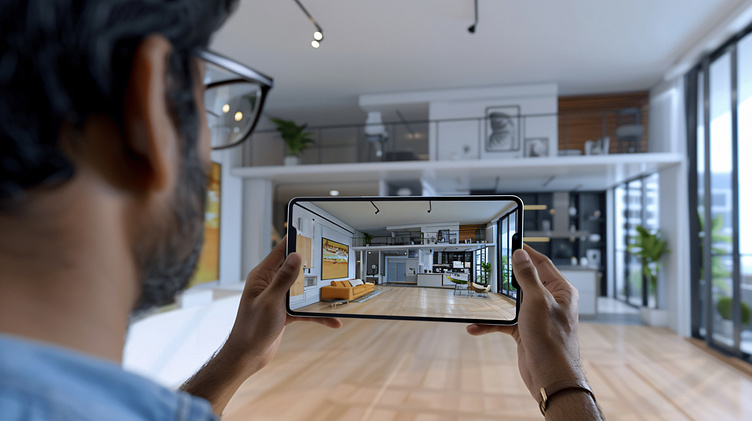Stepping into the Future: Virtual Reality for Real Estate
Virtual reality (VR) is significantly changing the real estate business. The means by which properties are promoted, perceived, and sold are revolutionized by this cutting-edge innovation. Buying and selling becomes easier and more interesting when utilizing VR's fully immersive experience.
Benefits of VR in Real Estate
Virtual Reality has various benefits; the potential consumers and real estate agents stand to gain from it. Virtual tours provide potential buyers with a more involving experience in comparison with conventional pictures or videos. You get to walk in and out of every corner around; even feel the design as if living there was real. This ensures one avoids any property not suit their needs long before they are visited physically hence time-saving.
Virtual reality is a game changer for real estate professionals and developers because it enables them to present properties to more people in different corners of the Earth. Moreover, virtual tours are more productive as compared to real showings, which helps agents concentrate on clients who are more likely to make a purchase. Nonetheless, it is possible that VR can also serve as an excellent promotional tool for standing out in hypercompetitive property markets.
What are the ways in which VR can be used by real estate agents?
VR can be integrated in different ways to enhance the agent's services and attract more clients. Here are some relevant VR applications in real estate:
Virtual Property Tours
In the sector of real estate, one of the most common applications of VR technology is VR property tours, where potential buyers do a virtual walk-through of the buildings just the same way they were physically present. With a VR headset on, customers can discover every space, check elements in detail, and understand how the house is constructed including its actual dimensions. Therefore, it enhances the ability to make correct decisions in such cases.
Virtual Staging
Virtual staging is one of the most powerful applications of VR. When traditionally staging a place, it demands actual furnishing it with items that make it more appealing to would-be purchasers. Nonetheless, this is a very expensive as well as a time-consuming strategy. Brokers and companies may employ VR or virtual staging to add furniture and decorative elements digitally to the features they offer. Besides costing less cash, the latter also comes with unlimited variations and can be customized in any number of ways to cater to different buyers.
3D Rendering
With 3D rendering in VR, agents can create very detailed realistic models of the property. These apply to properties that are either not yet built or are under renovation. Real estate agents through giving out realistic previews can enable buyers to visualize the final piece and this way turn them into actual buyers.
Virtual Commerce
In the field of real estate, virtual reality offers new possibilities for conducting business. Using virtual reality platforms, interested buyers can inspect and buy property online. The process of purchasing and browsing at the same time makes transactions easier. Even property management companies can make use of virtual reality for online consultations and management services that enhance customer satisfaction.
Architectural Visualization
Architectural visualization with VR enables architects and developers to present their designs interestingly and engagingly. This technology is used for displaying upcoming projects and helps stakeholders to see space before the building starts. Regarding detailed visualization, it aids in refining design and making informed decisions
Conclusion
Instead of just sitting down and thinking about what we can do with virtual reality, maybe walking around the room and seeing if any ideas pop up might be a better way of figuring this out. Virtual Reality in real estate has brought newer and innovative ways that the clients can access without the need to visit the property physically. By integrating virtual tours, and staging 3D renderings with architectural visualization software; virtual reality has revolutionized the process of selling or buying houses. This growth will lead to further exciting prospects for the industry as we keep advancing in technology.
Author Bio
Christie is a passionate and creative content marketing specialist at Styldod with a knack for crafting engaging and informative content that resonates with real estate agents and readers who are looking for content on interior and exterior design as well as design tech. She has a strong understanding of the real estate industry and is always up-to-date on the latest trends and best practices in the world of interiors, architecture, and content marketing. Feel free to connect with Christie at christie@styldod.io for a friendly chat about making your work smarter for you.
